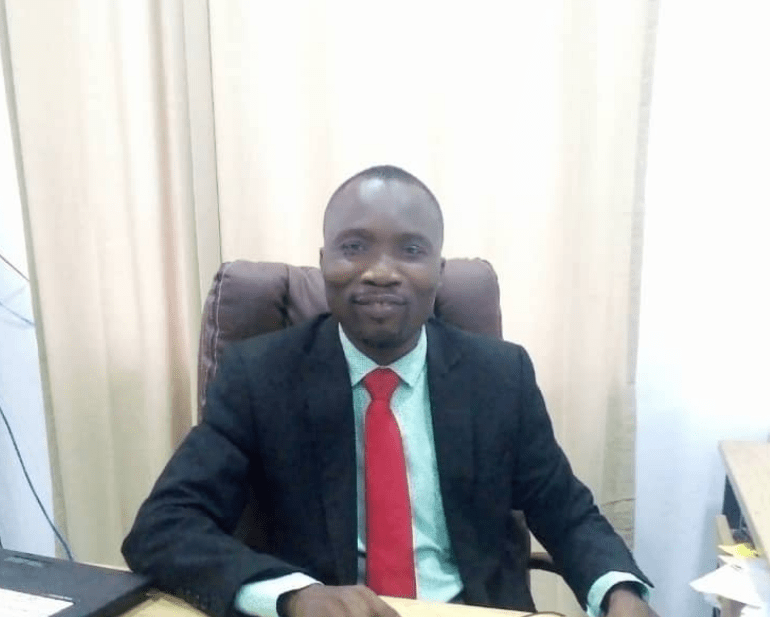Teachers Sexual Misconducts: GES Must Start Nationwide Investigation To Purge Our Schools

Mr. Wisdom Hammond -Editor at GhanaEducation.org
LEAD Impact Foundation a civil sosiety organization is calling for urgent nationwide investigation into teacher-student misconduct in second-cycle institutions. This call comes after back to back viral videos of teachers and heads were caotured in viral sexual videos.
The recent interdiction of Mr. Mfo Richard Tibetor of Okadjakrom Senior High Technical School and that of the Assistant Head Teacher of KNUST SHS captured in separate viral videos in the last four days are deeply compromising situation with female students. These are not isolated incidents.
It is a symptom of a festering cancer that has metastasized within the walls of our second-cycle institutions. For too long, the Ghana Education Service (GES) and the Ministry of Education have treated these egregious acts of misconduct as individual failings, opting for reactive, case-by-case punishments when public outrage becomes too loud to ignore.
Mr. Wisdom Hammond, co-founder of the LEAD Impact Foundation, has dislcosed that the interdiction approach is no longer acceptable since it only works after a viral video comes to the public domain. “The time for press releases and isolated interdictions is over” He added.
“We are now at a tipping point where the very sanctity of our educational environment is at in the various public and private SHSs are at stake. This is a daring, unequivocal call for the GES and the Ministry of Education to launch an immediate, full-scale, and nationwide investigation into the amoral relationships and sexual misconduct between teachers and students in our secondary, technical, and vocational schools.” The organization demanded
This is not a witch-hunt. It is a necessary, painful, and long-overdue national purification.
A Disturbing Pattern: More Than Just a Few Bad Apples
The LEAD Impact Foundation in its press release indicated that to understand the urgency of this call, we must connect the dots. It added that the Okadjakrom SHTS case is merely the latest headline in a horrifying scrapbook of predatory behaviour that has plagued our schools for years.
Just a few months ago, the nation was appalled by the case of the Assistant Headmaster of Aduman Senior High School, Mr. Kwaning Kankam, who was removed from his post following allegations of an improper relationship with a female student.
Who can forget the infamous “kitchen stool” headmaster of Dwamena Akenten Senior High School in 2017, whose leaked video with a student became a national scandal?
In 2019, a science teacher at Ejisuman SHS was arrested for allegedly leaking the nude photos of a female student he was in a relationship with.
Over the last five years, news archives are littered with reports from across the country—from the Ashanti Region to the Volta Region—of teachers impregnating students, coercing them into relationships, and exploiting their positions of power for sexual gratification.
These are just the cases that made it to the limelight, usually because of a leaked video or a brave victim. For every case that goes public, how many hundreds lie buried under the weight of shame, threats, and a culture of silence actively encouraged by school administrators afraid of reputational damage? To continue treating these as “isolated incidents” is a deliberate act of institutional blindness.
The GES Code of Conduct: A Toothless Bulldog?
The GES has a comprehensive Code of Conduct for Staff, which explicitly outlines the expected professional behaviour. Section 2.1(j) of the Professional Code of Conduct for Teachers in Ghana is unequivocal, stating that a teacher shall “not have any intimate relationship with a student/pupil.” The code further prohibits any form of sexual harassment, exploitation, or abuse of pupils/students. It establishes the teacher’s role as in loco parentis—acting in the place of a parent, a sacred duty of protection, not predation.
Yet, the persistent recurrence of these scandals proves one thing: this code, while noble on paper, is a toothless bulldog in practice. Its enforcement is weak, inconsistent, and almost entirely dependent on public exposure. School heads and management teams, who should be the primary enforcers, often become complicit gatekeepers, choosing to “handle matters internally” to avoid bringing “shame” upon their institution. This institutional cowardice enables predators to thrive.
The investigation we demand must not only identify guilty teachers but also hold accountable any head of school, board member, or staff member who has knowingly concealed such acts of misconduct. Their silence makes them accomplices.
The Call for a National Inquisition: A Non-Negotiable Demand
The GES and the Ministry of Education must immediately convene an independent, multi-stakeholder task force with a clear mandate:
Conduct a Comprehensive Audit: This task force must visit schools—announced and unannounced—across all 16 regions. It must be empowered to conduct confidential interviews with students, teachers, and non-teaching staff.
Establish a Secure Whistleblower Platform: A dedicated, confidential hotline and online portal must be created, managed by an independent body like CHRAJ or DOVVSU, where students and staff can report past and present cases of abuse without fear of victimization.
Zero Tolerance for Delays: This is a national emergency. The investigation must not be bogged down by bureaucracy. It must be swift, thorough, and transparent. The authorities must not delay.
This is not just about punishment; it is about restoring order and trust. Every teacher who has ever abused their authority, every headmaster who has looked the other way, must be held accountable.
Addressing Student Culpability and Systemic Discipline
While the burden of responsibility lies squarely on the adult in a position of authority, we cannot ignore the role that eroding student discipline plays in this crisis. The prompt for this action also requires us to address the uncomfortable truth that some students willingly engage in these inappropriate relationships for transactional benefits—good grades, money, or preferential treatment.
To be clear, this does not absolve the predatory teacher of guilt. The power imbalance is absolute. However, to permanently sanitize the system, the GES must also strengthen the Students’ Code of Conduct.
It must be amended to include clear, firm, and rehabilitative punishments for students found to be complicit participants in such relationships. This is not about victim-blaming; it is about deterrence. When students understand that seeking or accepting such a relationship will result in tangible consequences—such as suspension and mandatory counselling—it sends a powerful message that such behaviour is a violation of the school’s ethical code for everyone involved. It helps to deter a “like-minded” peer culture where such relationships are seen as a normal or even aspirational path to gaining favours.
The Ripple Effect: The Overwhelming Benefits of a System-Wide Cleanup
If the GES has the courage to undertake this monumental task, the positive transformations will be profound and far-reaching.
Improved Academic Performance: A school environment free from fear, exploitation, and emotional distress is a prerequisite for effective learning. Students who feel safe are more likely to focus on their studies, participate in class, and achieve their full academic potential. The psychological trauma of abuse or the distraction of an illicit relationship is a direct barrier to academic success.
Restoration of Teacher and Student Discipline: A nationwide crackdown will send an unmistakable message: boundaries are real, and they will be enforced. It will weed out the unprofessional elements, thereby restoring the dignity of the teaching profession. Good teachers will no longer be tarnished by the actions of the corrupt few. Simultaneously, it will re-establish clear behavioural expectations for students, fostering a culture of mutual respect and discipline.
Rebuilding Public Trust: Parents across Ghana are losing faith in the ability of schools to keep their children safe. A decisive, transparent investigation will be the single most powerful action the GES can take to restore parents’ confidence that schools are, first and foremost, safe havens for learning and growth.
Protection of the Vulnerable: Above all, this move will protect countless vulnerable young Ghanaians, particularly girls, from life-altering exploitation. It will prevent unwanted pregnancies, the spread of STIs, and the deep psychological scars that can derail a young person’s future.
The GES and the Ministry of Education stand at a crossroads. They can continue with the current reactive, piecemeal approach and wait for the next viral video to express “shock” and “disappointment.” Or they can choose a path of courage—to launch the painful but necessary national cleansing our education system desperately needs. The future of Ghana’s children and the integrity of our education system hang in the balance. The time for action is now.
Source: LEAD Impact Foundation
For radio and TV interviews, call 0550360658.





![Fix Ghana's Computerized School Placement System School placement for sale fraud uncovered by Manasseh Azure's Fourth Estate [VIDEO]](https://ghanaeducation.org/wp-content/uploads/2023/01/School-placement-for-sale-fraud-uncovered-by-Manasseh-Azures-Fourth-Estate-VIDEO-720x380.png) 6 Steps to Fix Ghana’s Computerized School Placement System (CSSPS)
6 Steps to Fix Ghana’s Computerized School Placement System (CSSPS)  UK’s international fee levy could slash enrolments by over 77k
UK’s international fee levy could slash enrolments by over 77k  Depressed university student dies after falling from ninth floor
Depressed university student dies after falling from ninth floor  GES non-teaching staff promotion portal opens: Apply here
GES non-teaching staff promotion portal opens: Apply here